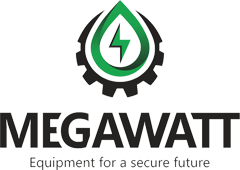What Makes a Marine Engine Different?
2024-06-28
Marine engines are a breed apart from their land-based counterparts, such as automotive engines. While both serve the purpose of converting fuel into mechanical energy, the demands placed on a marine engine are significantly higher due to the unique challenges it faces in its operating environment. Here's a look at what makes marine engines so different.
Constant Full Throttle Operation
Unlike a car engine, which typically operates at a fraction of its maximum horsepower to maintain a desired speed on the road, a marine engine is essentially at full throttle most of the time. This is because water is a much denser medium than air, and it takes much more energy to push a vessel through water than it does to propel a car through the atmosphere. Therefore, marine engines are designed to operate continuously at high loads and temperatures.
Heavy-Duty Construction
To cope with the constant high loads and stresses, marine engines are built with heavy-duty materials and components. The blocks, cylinders, and crankshafts are often made of stronger alloys that can withstand the extreme pressures and temperatures. The bearings, gaskets, and seals are also designed to last longer in the harsh marine environment.
Corrosion Resistance
The saltwater environment is particularly corrosive, and marine engines must be able to withstand this constant threat. To this end, marine engines are often made of corrosion-resistant materials or are treated with special coatings to protect them from rust and degradation. Even the lubricants and fuels used in marine engines are formulated to resist corrosion and contamination.
Cooling Systems
Due to the high temperatures generated by operating at full throttle, marine engines require efficient cooling systems. These systems are often designed with larger radiators, more robust pumps, and additional cooling fans to ensure that the engine remains within its optimal operating temperature range. Some marine engines even utilize seawater as a coolant, taking advantage of the natural cooling properties of the ocean.
Fuel Efficiency
While fuel efficiency is always a concern, it's even more critical in marine engines due to the high cost of fuel and the limited range of many vessels. Marine engines are therefore designed to operate as efficiently as possible, using advanced combustion technologies and fuel injection systems to maximize power output while minimizing fuel consumption.
Safety Considerations
Finally, safety is a paramount concern in marine engines. Not only do they need to be able to operate reliably in demanding conditions, but they also need to be able to shut down safely in the event of an emergency. Marine engines are therefore equipped with redundant safety systems, such as multiple fuel shut-off valves and emergency stop buttons, to ensure that the vessel can be brought to a safe stop if necessary.
In conclusion, marine engines are unique in their design and construction due to the demanding conditions they operate in. Their constant full throttle operation, heavy-duty construction, corrosion resistance, efficient cooling systems, fuel efficiency, and safety considerations all contribute to their ability to power vessels through the water reliably and safely.

























